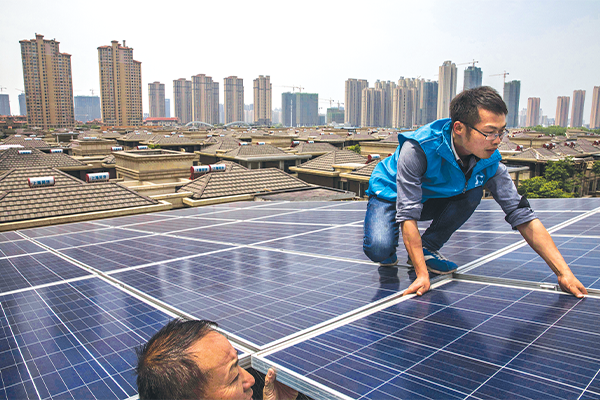IF YOU EVER wondered why international climate negotiations feel janky and feeble — with each individual country making a “pledge” (that mostly goes unfulfilled) instead of signing an enforceable treaty — the primary answer is American political dysfunction. Sometime after the Kyoto treaty process collapsed more than a quarter century ago (time flies when you’re wrecking the planet) it became clear to all the other players that two-thirds of the U.S. Senate would never be willing to approve a bill that did anything to rein in the fossil fuel industry that paid for their elections. And since a two-thirds majority is what a treaty requires, the world instead would have to rely on the jury-rigged process we now see.
If your picture of China is smog-choked cities, think again.
All this is a long way of saying: If you’re looking for a silver lining to the horror that is Trumpism, it’s entirely possible that the world will work better with the United States out of the way. Climate negotiations are the most important thing in the world, and we have continually been more hindrance than help. Now that the U.S. has left, China and the European Union will have a much freer hand.
It will be interesting to see if Beijing, in particular, seizes this issue to take the global moral high ground. Given China’s remarkable investments in clean energy technology, one shouldn’t bet against it.
If your picture of China is smog-choked cities, think again: Partly because that bad air angered enough people to pose a threat to the legitimacy of the regime, the Chinese Communist Party began to engineer its way out of its dilemma. Now some Chinese cities have begun to sparkle. They’re also a lot quieter than they used to be — half the cars sold there last year came with plugs. This is where the electric vehicle revolution has taken root, and the recently completed Shanghai International Automobile Industry Exhibition put Detroit on notice: The world probably wants a $15,000 EV that comes with all the bells and whistles.
It’s not just on environmental issues that China may show the world what leadership looks like. Since the U.S. pulled out of the World Health Organization (too many vaccines, not enough beef tallow), China stepped up and plugged the $500 million hole we left. “China strongly believes that only with solidarity and mutual assistance can we create a healthy world together,” one of China’s vice premiers explained.
I have no illusions about China. Clearly, I would be rotting in jail if I lived there, next to other dissidents who raised questions about the environment or anything else. But its government, if cruel, also seems mostly rational and capable of foresight. Americans of my age have spent our whole lives blithely assuming we were the most important country on earth; often we’ve abused that dominance, but always we’ve felt it. That’s not so true anymore. And on a wide swath of issues, that may turn out to be an advance.

Got something to say about what you're reading? We value your feedback!







